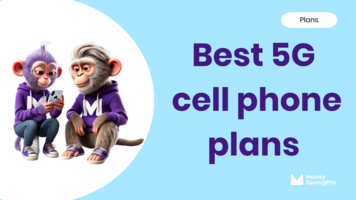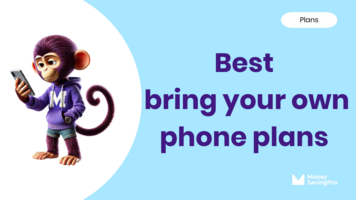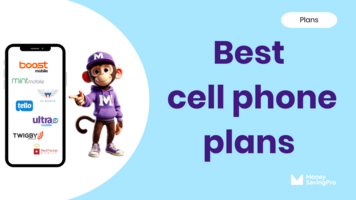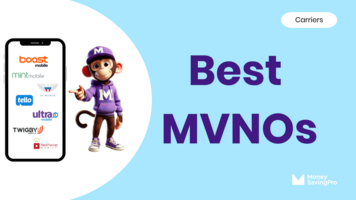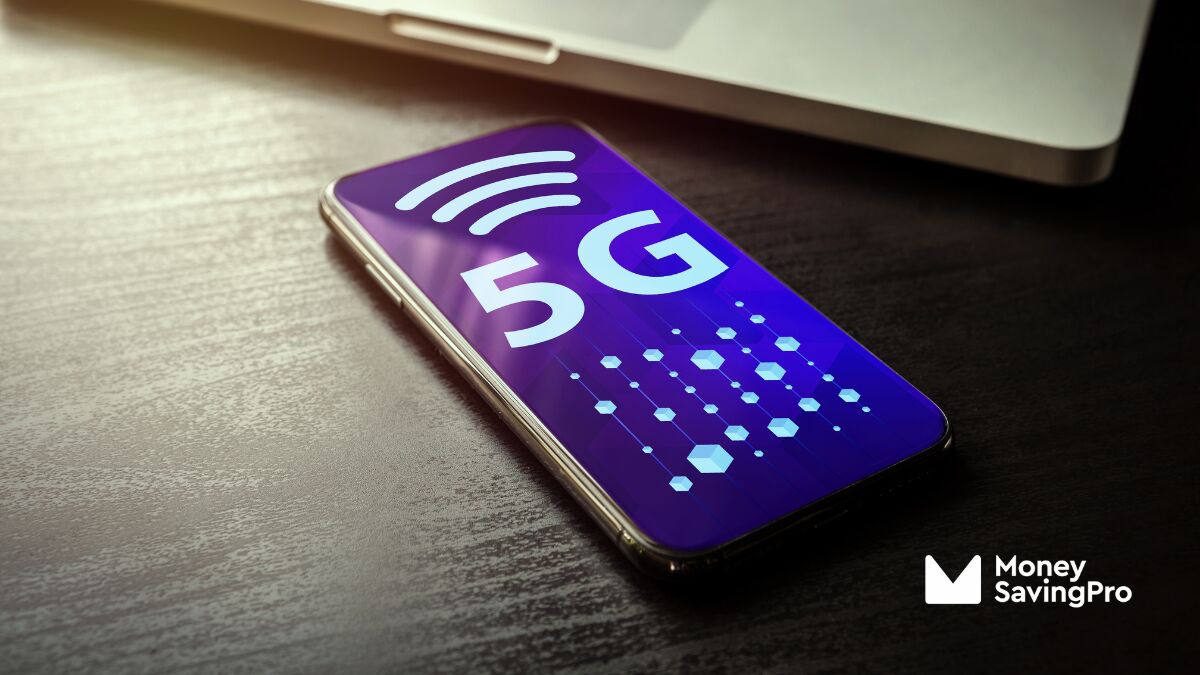
Although you've probably heard of 5G technology before, most of us have no clue what it actually means. In fact, many of us only started taking notice around the time that 3G took a foothold in our lives.
This is due to the ever-increasing need for a network connection for our smartphones and other devices, which some of us remember wasn't necessary just a few generations ago.
Now that our lives revolve around cell phones and other connected devices, we see the push to constantly improve cellular technology.
What is 5G?
The onset of 5G technology has been a highly-anticipated revolution in cellular communication. It's an upgrade to the current 4G LTE standard that promises to meet our rapidly growing needs as mobile device users - providing faster speeds, increased reliability, and enhanced performance overall.
5G is the latest wireless technology that is designed to offer faster data transfer speeds, increased bandwidth, and lower latency than previous generations. It promises to provide faster download and upload speeds, improved network reliability, and enhanced connectivity.
Technology continues to advance - and with it comes the International Telecommunications Union's (ITU) ever-evolving set of standards. These rules & specifications work together to make sure wireless networks are as efficient, reliable, and secure as possible.
How does 5G wireless technology work?
5G operates on a new spectrum of radio frequencies, which are higher than those used in previous cellular networks. These higher frequencies allow for more data to be transferred at a faster rate, enabling high speeds for uploads and downloads.
Additionally, 5G networks use advanced antenna technologies such as massive MIMO, which uses multiple antennas to transmit and receive signals, allowing for increased network capacity and coverage.
5G advanced technologies are designed to operate on higher radio waves, also known as millimeter waves. A millimeter wave is a higher frequency than the radio waves used in 4G LTE.
To achieve this, 5G uses a combination of three key components:
- Millimeter-wave frequencies: provide a larger bandwidth, which allows for faster data transfer rates.
- Small cell networks: used to increase coverage and reduce the distance between the transmitter and receiver, which improves signal strength.
- Beamforming: allows the antenna to focus the radio spectrum signal in a specific direction, which further improves the signal strength and reliability.
With the Enhanced Mobile Broadband (eMBB) users can expect to download large files in a matter of seconds, stream high-quality videos with minimal buffering, and experience more reliable and stable network connections.
What are the benefits of 5G cellular networks?
4G has become a way of life for us all, so it only makes sense that this new technology will only improve what we've become accustomed to.
Now more than ever in we have realized the importance of having high-quality cellular networks and internet access in keeping our world connected.
Some of the most significant benefits of 5G include:
Faster data transfer rates
The fifth generation of this technology promises to deliver superior speeds improving user experience with video chat, streaming video, and home internet service.
This means that you can download and upload large files up to 20 times faster than 4G LTE, stream high-quality videos with ease, and enjoy smoother online gaming experiences.
Reduced latency
5G networks have lower latency than 4G LTE.
Latency's the time it takes for data to travel between a device and a network.
With lower latency, you can enjoy faster response times, which is crucial for real-time applications such as gaming and video streaming, and video conferencing.
Increased network reliability
5G networks are more reliable than previous other cellular networks.
They are designed to be more resilient to network congestion and are less likely to experience dropouts and interruptions.
Enhanced connectivity
Mobile operators expect 5G to provide enhanced connectivity, especially in crowded areas such as stadiums and airports.
The 5G network architecture should be able to support up to 1 million devices per square kilometer to connect to the network simultaneously, which is a vast improvement over 4G LTE.
Enhanced user experience
With faster data transfer rates and low latency, users can enjoy a more seamless experience when using wireless services in streaming videos, playing games, or using other data-intensive applications.
What the different types of 5G?
There are three types of 5G low-band, mid-band, and high-band. Each type operates on a different frequency band and offers different benefits.
- Low-band 5G: Operating on frequencies below 1 GHz. It's closest to 4G in terms of coverage and speed, making it perfect for rural areas and suburban areas with low population density.
- Mid-band 5G: This type of 5G uses a frequency between 1 and 6 GHz. Offering faster speeds than low-band 5G and is ideal for urban areas with moderate population density.
- High-band 5G: Using frequencies above 6 GHz offers the fastest speeds and the lowest latency of all three types of 5G. But it has the shortest range and is only suitable for densely populated urban areas.
What are the applications of 5G?
5G technology is poised to be a total game-changer for the healthcare, transportation, and entertainment industries - with potential benefits extending far beyond what we can currently imagine.
- Healthcare: 5G technology can be used to improve healthcare services. The technology can enable remote patient monitoring, medical procedures, telemedicine, and the use of virtual reality in medical training.
- Transportation: 5G can also be used to make a significant improvement to transportation services. The technology can enable real-time traffic monitoring, the use of self-driving cars, and improved logistics and supply chain management.
- Entertainment: 5G can also enhance the entertainment industry. With high-speed uploads and downloads and increased network capacity, users can stream high-quality videos and play video games without lag.
5G and security
Security is an important concern in any wireless network, and 5G is no exception. As 5G networks are expected to connect a large number of devices, there are concerns about potential security breaches and cyberattacks.
However, the 5G standard includes several security features such as improved encryption and authentication protocols, making it more secure than previous mobile network technologies.
What are the challenges of implementing 5G?
Despite its many benefits, the implementation of 5G comes with several obstacles to widespread usage. Some of the challenges for cellular providers include:
- Infrastructure: The deployment of 5G networks requires significant infrastructure upgrades, including the installation of new base stations and antennas.
- Compatibility: 5G technology is not compatible with some of the older devices, and this can be a challenge for users who are looking to upgrade their devices.
- Limited Coverage: While 5G promises faster speeds, its coverage is limited to certain areas, and this can be difficult for users who live in remote areas.
5G FAQs
No, 5G is not yet available everywhere. The fifth-generation technology is still being rolled out in various parts of the world, and its coverage is limited to certain areas.
While 5G is expected to eventually replace 4G LTE, it will take some time before this happens. 4G networks will continue to operate alongside 5G networks for the foreseeable future.
This depends on the device you currently have. Some older devices and mobile phones may not be compatible with the 5G network, and you may need to upgrade to a newer device that supports the 5G network.
The cost of using the 5G network will depend on the service provider you choose. While some providers may charge more for the 5G network, other network operators may offer it at the same price as 4G LTE.
The 5G network promises to be much faster than 4G LTE, with download speeds up to 20 gigabits per second and latency as low as 1 millisecond using new millimeter wave technology.
Recap
As the fifth generation of wireless technology, 5G offers faster speeds and more reliable connections. Most carriers now offer 5G coverage at no extra cost to your wireless plan.
5G is available in most major cities and towns across the US, but availability is limited at this time, so it's best to check with your provider.
